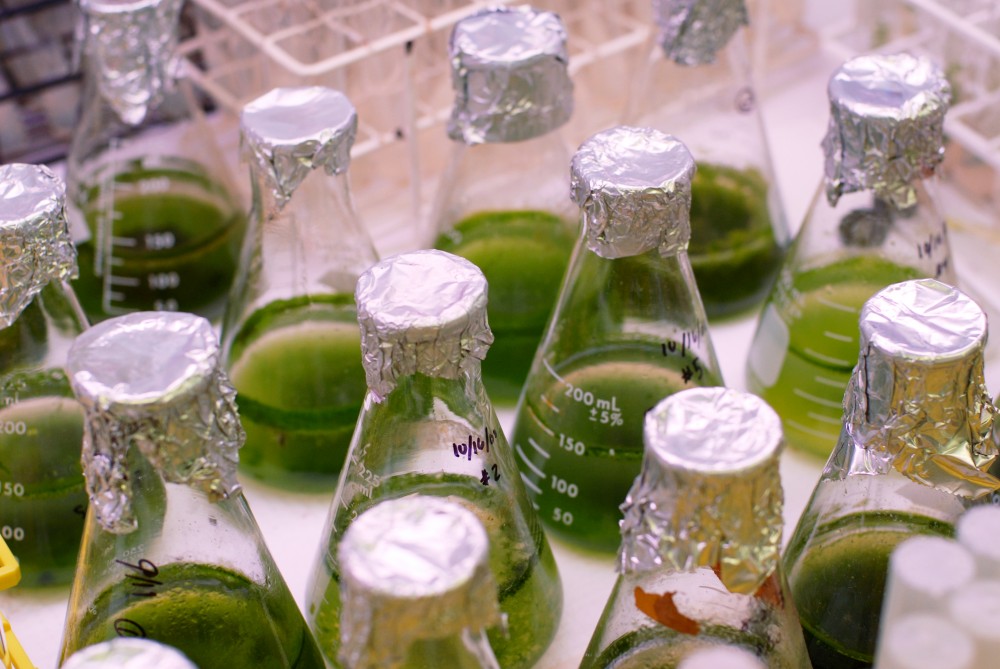With the countryâÄôs energy outlook still undecided, a team of researchers at the University of Minnesota is leading the investigation of a promising new source of biofuels . Professor Roger Ruan, director of the Center for Biorefining , and a team of researchers are examining algae as a possible source of oil for biofuels. Ruan said algae have shown promise as a biofuel and the team is working to make it as productive as possible. He will be discussing his research along with other biofuel experts at the From Pond to Power forum Tuesday, put on by the student group EcoWatch. One key to making algae a viable source for biofuel is to find other uses for it to reduce the overall cost of production, Ruan said. âÄúOn a big scale, it would probably have to combine with some other benefit like wastewater treatment or CO2 neutralization,âÄù he said. Using algae to clean wastewater could cost less than current methods, Ruan said, and the savings generated could make the fuel created from the algae cheaper and more economically feasible. Obstacles do exist in growing algae in large amounts and then extracting oil from it, Ruan said. âÄúSince algae are wet, extracting the oil from it is very expensive,âÄù Ruan said. âÄúWeâÄôre trying a range of techniques to convert algae to biodiesel.âÄù Min Min , a post-doctoral student working with Ruan, said itâÄôs exciting to be working on a project with broad impact. Her work primarily involves trying to grow algae in wastewater and then using it to clean the waste, she said, adding that it could be a useful process in the future. Dennis Keeney, a senior fellow at the Institute for Agriculture Trade Policy , said there is a need for new biofuels as resentment grows against the use of corn ethanol as a fuel source at both a scientific and national policy level. âÄúWe should move on and do something better, pretty fast,âÄù he said. Keeney said he thinks the federal government overinvested in corn ethanol, and is continuing to push it as a fuel source even though economic and energy efficiency issues have arisen. âÄúItâÄôs proving to be something we did too fast,âÄù Keeney said. âÄúThey thought they had a winner and itâÄôs turning out to be a loser.âÄù Mark Hamerlinck, communications director for the Minnesota Corn Growers Association , said his organization supports taking a âÄúparallel pathâÄù that involves the continued use of corn ethanol while other alternative fuels are developed. âÄúWeâÄôve got something thatâÄôs proven that works in corn ethanol,âÄù he said. Hamerlinck said no single alternative fuel will be able to fix the countryâÄôs energy security issues. âÄúCorn ethanol isnâÄôt the silver bullet, itâÄôs a silver BB,âÄù he said. âÄúItâÄôs a part of the solution.âÄù Regardless of corn ethanolâÄôs future as an energy source, Ruan said he believes algae-based biofuels can be a part of the solution. âÄúI think thereâÄôs real potential,âÄù he said.

Image by Tara Sloane
Algae grow in a lab at the Biosystems and Agricultural Engineering building on Monday. University researchers are experimenting with different types of algae in an attempt to create biodiesel.
U researchers try to make fuel from sludge
Published November 24, 2008
0

